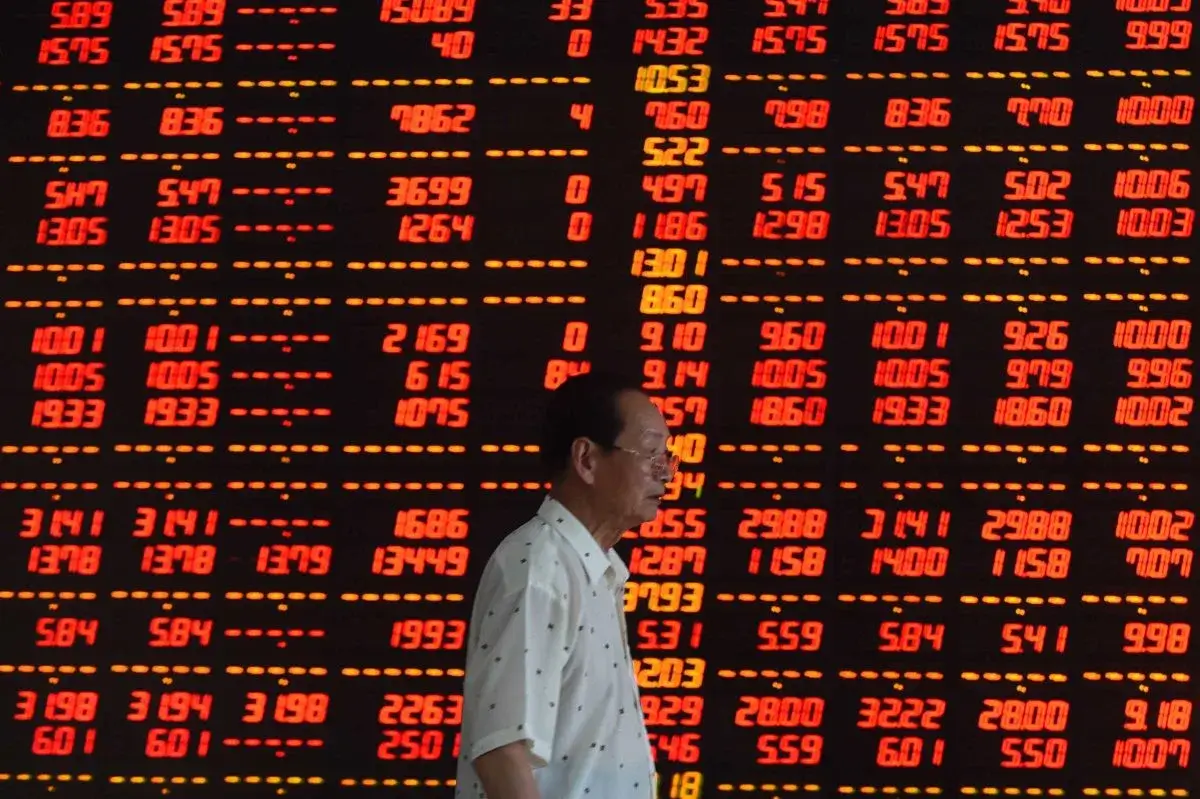U.S. Recession Warning? Key Market Indicator Nears Critical Level
25.03.2025 9:00 2 min. read Kosta Gushterov
A key economic indicator is flashing warning signs as uncertainty looms over financial markets.
The Dow Jones to Gold Ratio, which tracks the balance between equities and gold, is nearing a level that has historically preceded major recessions. Analysts warn that similar patterns emerged before downturns like the Great Depression, the 2008 crisis, and the COVID-19 crash.
This ratio reflects how many ounces of gold are needed to match the Dow Jones Industrial Average. A decline signals growing investor preference for gold, often a reaction to stock market weakness. As 2025 unfolds, the ratio is edging toward a critical threshold, fueling concerns that a significant shift may be underway.
Market sentiment has turned increasingly cautious. Goldman Sachs now sees a 20% chance of a U.S. recession, up from 15%, citing potential trade disruptions. Meanwhile, a Bank of America survey found that 55% of fund managers rank a global recession as their top risk, with rising cash reserves indicating a move toward safer assets.
Consumer confidence is slipping, as reflected in a sharp decline in the University of Michigan’s Sentiment Index. Leading economic indicators are also weakening—industrial production, retail sales, and home purchases are all slowing.
On a global scale, sluggish growth in key markets like China and Europe is putting additional pressure on U.S. exports. With multiple warning signs stacking up, fears of an economic downturn continue to build.
-
1
Billionaire Slams Meme Stock Hype and Sounds Alarm on U.S. Fiscal Health
15.06.2025 18:00 2 min. read -
2
Robert Kiyosaki Predicts 2025 “Super-Crash,” Urges Hoarding Gold, Silver, and Bitcoin
23.06.2025 13:31 2 min. read -
3
Nassim Taleb Says Global Trust Is Shifting from the Dollar to Gold
22.06.2025 17:00 1 min. read -
4
Billionaire Investor Sees Dollar Crash If Key Support Breaks
18.06.2025 15:00 1 min. read -
5
Geopolitical Shockwaves Hit Ethereum Hard While Bitcoin Stays Resilient
22.06.2025 16:21 1 min. read
Robert Kiyosaki Predicts When The Price of Silver Will Explode
Robert Kiyosaki, author of Rich Dad Poor Dad, has issued a bold prediction on silver, calling it the “best asymmetric buy” currently available.
U.S. PCE Inflation Rises for First Time Since February, Fed Rate Cut Likely Delayed
Fresh data on Personal Consumption Expenditures (PCE) — the Federal Reserve’s preferred inflation gauge — shows inflation ticked higher in May, potentially delaying the long-awaited Fed rate cut into September or later.
Trump Targets Powell as Fed Holds Rates: Who Could Replace Him?
Federal Reserve Chair Jerome Powell is once again under fire, this time facing renewed criticism from Donald Trump over the Fed’s decision to hold interest rates steady in June.
U.S. National Debt Surge Could Trigger a Major Crisis, Says Ray Dalio
Billionaire investor Ray Dalio has sounded the alarm over America’s soaring national debt, warning of a looming economic crisis if no action is taken.
-
1
Billionaire Slams Meme Stock Hype and Sounds Alarm on U.S. Fiscal Health
15.06.2025 18:00 2 min. read -
2
Robert Kiyosaki Predicts 2025 “Super-Crash,” Urges Hoarding Gold, Silver, and Bitcoin
23.06.2025 13:31 2 min. read -
3
Nassim Taleb Says Global Trust Is Shifting from the Dollar to Gold
22.06.2025 17:00 1 min. read -
4
Billionaire Investor Sees Dollar Crash If Key Support Breaks
18.06.2025 15:00 1 min. read -
5
Geopolitical Shockwaves Hit Ethereum Hard While Bitcoin Stays Resilient
22.06.2025 16:21 1 min. read


